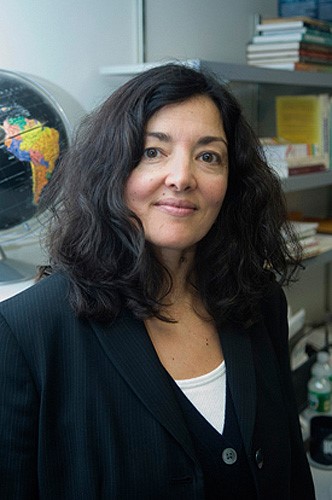The Need for Interdisciplinary Approaches
Despite significant advancements in climate science, the issue of climate change remains a complex and multifaceted problem that cannot be solved by physical science alone. According to Anji Seth, a physical scientist with a Ph.D. in atmospheric sciences, climate justice requires a holistic approach that integrates insights from various disciplines. Seth emphasizes that while scientists can solve the technical aspects of climate change, the human and social dimensions are equally critical and require collaboration across different fields.

Seth’s realization came after years of working on climate change issues. She noted that physical science can address only part of the problem, leaving the social and human aspects unresolved. This understanding led her to pursue interdisciplinary research, teaching in the department of geography, sustainability, community, and urban studies at the University of Connecticut.
The Formation of the JUSTICE Collaboratory
To tackle the broader implications of climate change, Seth and her colleagues formed the Collaboratory for JUST Innovation and Climate Equity (JUSTICE). This initiative began as an informal faculty reading group discussing books on climate change and humanity, but it quickly evolved into a comprehensive collaboration involving researchers from diverse fields. The group includes physical scientists, social scientists, and humanities researchers working together to develop innovative and justice-oriented solutions to climate change.
The JUSTICE Collaboratory leverages the strengths of various research centers and institutes at the University of Connecticut, such as the CLEAN EARTH Laboratory, the Atmospheric Sciences Group, and the Connecticut Institute for Resilience & Climate Adaptation (CIRCA). This integrated approach allows for a more comprehensive understanding and addressing of climate change issues.
Integrated Ideas and Collective Action
Seth stresses that the integration of ideas from different disciplines is crucial for creating equitable and just futures for all communities. She points out that social scientists and humanities researchers have been working on these issues for decades, and it is essential for STEM scientists to be educated about this existing work. The JUSTICE Collaboratory has organized various classes and symposia, such as the Just Transitions Symposium, to foster this interdisciplinary collaboration and drive meaningful action against climate change.
The collaborative efforts of the JUSTICE Collaboratory highlight the importance of shared goals and mutual support in addressing the complex challenges posed by climate change. By integrating ideas and leveraging the strengths of multiple disciplines, we can create a more resilient and sustainable future for all communities.
Cover photo from Unsplah
